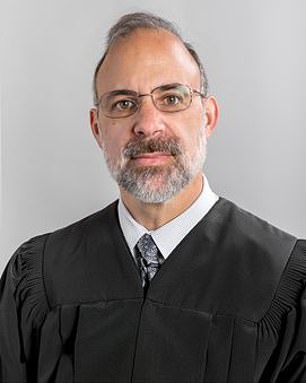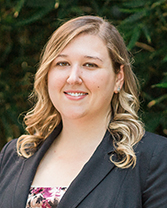San Francisco Superior Court Judge Ethan P. Schulman has used his knowledge and passion for the law to make a difference in the legal community. He has been a strong supporter of the Barristers Club and the Bar Association of San Francisco. This year, the Barristers Club is delighted to present Judge Schulman with its Tara L. Riedley Barristers Choice Award at the 38th Annual Judges Reception on July 14, 2022.
I recently had the pleasure of speaking with Judge Schulman about his career as an appellate attorney and a San Francisco Superior Court judge. Here are some of the highlights from our conversation.
Journey to the Bench
Prior to being appointed to the San Francisco Superior Court, Judge Schulman dedicated his career to being an appellate attorney. In 1984, Judge Schulman started as a litigation associate at Howard Rice. He then worked as an appellate specialist at Folger Levin & Kahn and Crowell & Moring. During his time as an appellate lawyer, Judge Schulman had the opportunity to work on many interesting and high-profile cases. Two cases that really stand out for Judge Schulman are Martinez v. Regents of the University of California and Christian Legal Society v. Martinez. Both of these cases came near the end of Judge Schulman’s career as an appellate attorney and were particularly gratifying because of the important issues they addressed.
Martinez v. Regents of the University of California involved the issue of whether undocumented students could be exempt from paying nonresident tuition at California state colleges and universities if certain criteria were met. The plaintiffs challenged the statute on the grounds that it violated federal statutes, the United States and California Constitutions, and the Unruh Civil Rights Act. The California Supreme Court held unanimously that the statute did not violate federal law because the statute was not based on an undocumented person’s residency in California. Instead, it was based on other criteria, including attending high school in California for at least three years. The Court further held the other challenges to the statute did not have merit. The United States Supreme Court denied review of the decision.
The issue in Christian Legal Society v. Martinez was whether a University of California, Hastings College of Law policy regarding student organizations was in violation of the First Amendment. Specifically, Hastings College of Law’s nondiscrimination policy required recognized student organizations to allow any student to be a member or part of leadership regardless of beliefs or the student’s status. The Christian Legal Society applied to be a recognized student organization at Hastings College of Law. However, the bylaws of the organization required members and officers to sign a “Statement of Faith” and follow certain principles in their lives. Based on those principles, the organization excluded LGBTQ individuals and those of different religious beliefs. Hastings College of Law denied the Christian Legal Society’s request to be a recognized student organization. The case went to the United States Supreme Court, which held in a 5-4 decision that Hastings College of Law’s policy was a reasonable and viewpoint-neutral restriction that did not violate the First Amendment. Although Judge Schulman did not argue the case at the United States Supreme Court, he was co-counsel on the briefs and sat at counsel’s table during the argument. He was also the attorney who argued the case in the District Court and the Ninth Circuit Court of Appeals.

New attorneys should be taking advantage of the opportunities that are now available because of the use of remote depositions and hearings. They should be asking to write motions, argue at hearings, and attend or take depositions. This is the experience new attorneys need to grow.
Being on the Bench
After a successful career as an appellate attorney, Judge Schulman wanted to try a new avenue of the law. In 2013, he was appointed to the San Francisco Superior Court by Governor Jerry Brown. Although he misses the written and oral advocacy aspects of his role as an attorney, he now enjoys being able to focus on making the right decision in every case that comes before him.
When he was first appointed to the San Francisco Superior Court, Judge Schulman was assigned to a department overseeing criminal cases. Coming from a mostly civil law background, he was introduced to a different world from civil law. Judge Schulman not only had to learn a new area of law, but he also had to learn about the role addiction, poverty, and lack of opportunities play in someone being charged with a crime. In his jury trials, Judge Schulman tried to impose fair and compassionate sentences that took both the victim and defendant into consideration. One challenge he dealt with regularly was hearing difficult and emotional testimony, especially from children who were victims of crimes. People sometimes forget, “judges don’t lose their humanity when they put on their robes.”
Judge Schulman has since had several civil law related assignments. From 2019 to January 2022, Judge Schulman was the Law and Motion judge. He was responsible for hearing motions related to many different areas of law, including business, employment, personal injury, and even writs of mandate related to revocation of licenses and vicious dog determinations. Judge Schulman is now assigned to Complex Litigation where he faces the challenges of managing cases and finding the right time to encourage parties to discuss settlement.
Each one of Judge Schulman’s assignments since being appointed to the bench has come with its own challenges, but he enjoyed each of them.
Common Mistakes Made by Lawyers
Judge Schulman identified three common mistakes he has seen attorneys make throughout his time on the bench. The first mistake attorneys make is failing to tell the court about controlling authority for an issue in dispute. Despite attorneys having a duty of candor to the court, Judge Schulman has experienced situations where both parties fail to identify a case that he or his research clerk identifies later as the controlling law. Due to this experience, Judge Schulman now regularly conducts his own research instead of depending on counsel to fully inform him of applicable law.
Another common mistake Judge Schulman sees is attorneys citing unpublished decisions in their papers. Although he understands attorneys do this because the case supports their client’s position on an issue, it is not permitted under the California Rules of Court. Similarly, Judge Schulman sees attorneys rely on trial court decisions on an issue. With so many counties in California, it is likely a superior court judge has decided an issue in the way the attorney wants it decided. However, such authority is not precedential and generally should not be cited.
One final mistake identified by Judge Schulman was attorneys filing unnecessary discovery motions in matters. Although there are times when discovery motions may be necessary, such as when privilege or private information is involved, he believes many of the motions being filed are unnecessary. The motions are merely being filed because the attorneys want to fight about an issue or seek sanctions against the other attorney; this is not what the legal profession is supposed to be about. Judge Schulman believes attorneys need to remember what they have learned from the last couple of years and battling the pandemic—life is short. They should be respectful of those on the other side and should work to resolve disputes instead of unnecessarily filing motions.
Advice for New Lawyers
Judge Schulman’s advice for new lawyers is to “push your supervising attorney to give you new opportunities as soon as possible.” Although he remembers days when he had to go to warehouses to look through boxes of documents and knows there was value to that assignment, he also recognizes that multiple assignments like that will not make someone a well-rounded attorney. Instead, attorneys need to seek assignments which are going to help them grow and which require them to take responsibility. Getting trial experience is rare these days, especially with many courts still dealing with the backlog of cases from COVID-19. However, there are increased opportunities that attorneys may have now that were not available before COVID-19. New attorneys should be taking advantage of the opportunities that are now available because of the use of remote depositions and hearings. They should be asking to write motions, argue at hearings, and attend or take depositions. This is the experience new attorneys need to grow.
Judge Schulman also advises new lawyers to work on establishing credibility with the court they are appearing in. When there are multiple arguments that can be made for an issue, lead with the strongest argument. And if there is a case directly on point for an issue, identify the case for the court in the papers. The court is likely going to do its own research and identify the case that is directly on point. Instead of trying to hide the case from the court, it is important to identify it and then take the opportunity to distinguish the case. Also remember, if there is no way to distinguish the case or make a strong argument for why the court should rule a certain way on an issue, then concede and move on to a strong point that can be argued.
ABOUT THE AUTHOR:
 Courtney M. Brown is a litigator at the Law Offices of Mary Catherine Wiederhold, and is the President-Elect for the Barristers Club. Her practice focuses on representing tenants facing a variety of issues including wrongful eviction, housing violations, and fire-related losses as well as other aspects of real estate litigation.
Courtney M. Brown is a litigator at the Law Offices of Mary Catherine Wiederhold, and is the President-Elect for the Barristers Club. Her practice focuses on representing tenants facing a variety of issues including wrongful eviction, housing violations, and fire-related losses as well as other aspects of real estate litigation.
